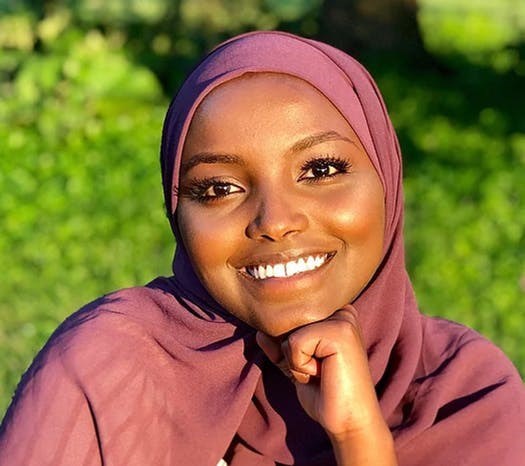
Sunday November 10, 2019

As Nadia Mohamed doorknocked for her City Council campaign, the 23-year-old often fielded questions from St. Louis Park residents about her age. Just how young are you, they asked her, and what could such a fresh face possibly know about sidewalks?
Aside from the usual challenges of navigating a first-time campaign, Mohamed realized her biggest hurdle was internal: “I needed to rewire my thinking to see my age as my strength.”
Mohamed, who on Tuesday became the first Somali-American and Muslim on the council, was just one of several younger women — many of diverse backgrounds — who claimed victory in suburban local elections last week.
Their success continues a dynamic shift that made headlines in 2018 when record numbers of women were elected to Congress. At the same time, women of color in Twin Cities suburbs achieved many historic firsts.
The new community leaders also share priorities that could spell change at city halls and county board chambers. They include environmental issues, affordable housing and ensuring diversity and equity in government.
“We have a lot of work to do — and I don’t want people to stop at my identity,” Mohamed said.
The newly elected women say the trend has been building over the last few years, and they credit each other for support and inspiration, as well as organizations such as TakeAction Minnesota, Women Organizing Women and Women Winning, aimed at encouraging women to seek public office.
Such women are “feeling a sense of confidence because they are seeing representation now that look like them,” said Pahoua Yang Hoffman, executive director of the Citizens League. “The community is also rallying around them.”
Kimberly Sanberg, 35, a marketing consultant who won a Golden Valley City Council seat, said that she didn’t know how voters would receive her as a 30-something lesbian. Some asked about her age, but she said it seemed the questions arose more out of curiosity than skepticism.
“Frankly, I think everyone was excited about getting a fresh new perspective on the council,” said Sanberg. “I think people are ready for … people with different perspectives and backgrounds who are representative of what our city, state and country looks like.”
Kathryn Pearson, a University of Minnesota political science professor, noted that many women initially got fired up about politics after the 2017 Women’s March that spoke to many of the issues that motivated them to run. Since then, young people, people of color and women have mobilized, she said.
Pearson said the “role-model effect” in politics can be powerful and may continue to inspire more women to run. Sometimes that’s half the battle.
“Women have long been just as likely as men to win,” she said. “With more women running, that means that women are winning, and so it’s much more visible.”
Representing people
Not every woman under the age of 50 won her race this fall. Many male politicians held their seats or won new positions. In Bloomington, City Council Member Tim Busse was elected mayor, defeating 35-year-old political newcomer Ryan Kulka. St. Louis Park Mayor Jake Spano won in a landslide over legal mediator Yvette Baudelaire.
But change was in the air. Community activist Jenna Carter, 34, defeated Bloomington firefighter Brian Clemens for the City Council; she wants to revitalize neighborhoods.
And it wasn’t just younger women who won. Kay Andrews was elected to the Falcon Heights City Council, and Jane Schneeweis came in a single vote ahead of Mahtomedi City Council Member Dick Brainerd.
The new women leaders had mixed views on the significance of breaking new ground.
Nicole Joy Frethem, 37, a supervisor in the state Department of Human Services, defeated former legislator Randy Jessup for the Ramsey County Board. She said she was initially inspired to run by her interest in county government and a desire to improve the political climate.
“When I found out that there had never been a woman to serve District One, that made it all the more exciting,” she said. “Come on — it’s 2019.”
Kissy Coakley, 42, who has worked as a domestic violence advocate and believes she’s the first black person on the Minnetonka City Council, said making city leadership more inclusive was the central reason she ran.
“I felt that Minnetonka wasn’t representing the whole city on its City Council,” she said.
Mohamed said she doesn’t want to be seen only in terms of being a “first,” but she knows her identity matters.
“The next kid that knows they have amazing ideas won’t just see older adults with established careers [on the council],” she said. “Me being at that table every day will be a reminder.”
Amanda Koonjbeharry, public policy director for the Citizens League, said that she believes millennials — those from their early 20s to late 30s — are particularly interested in running for office earlier than past candidates have been.
“We are not falling into that narrative that we have to wait for our turn,” she said. “We have a lot to learn but we also have a lot to give.”
For Bloomington’s Carter, the impact of her campaign has already reached further than she imagined. She’s had people say that she prompted them to get involved or door-knock for the first time.
“Now more than ever, we are seeing women and people of color running for office,” she said. “The more people who do, the more people we can inspire to follow.”